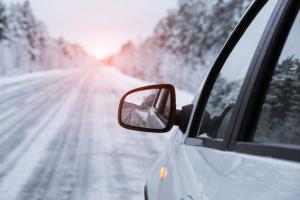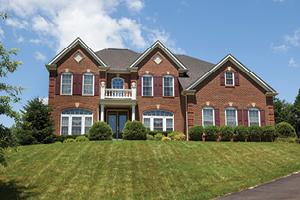Freezing temperatures preparation and safety tips for homeowners
Learn ways to prepare your home before, during and after freezing temperatures.
Sources:
Insurance Information Institute
These essential tips, developed by The Hanover, provide important guidelines to help you prevent the most common weather-related damage that may occur during freezing temperatures. Bookmark this page to refer to these tips regularly, to help avoid or reduce the effects of a storm on your home and vehicles.
Related resources
Freezing temperatures preparation and safety tips for homeowners
Learn ways to prepare your home before, during and after freezing temperatures.
Sources:
Insurance Information Institute
These essential tips, developed by The Hanover, provide important guidelines to help you prevent the most common weather-related damage that may occur during freezing temperatures. Bookmark this page to refer to these tips regularly, to help avoid or reduce the effects of a storm on your home and vehicles.
Related resources
Freezing temperatures preparation and safety tips for homeowners

Learn ways to prepare your home before, during and after freezing temperatures.
Sources:
Insurance Information Institute
These essential tips, developed by The Hanover, provide important guidelines to help you prevent the most common weather-related damage that may occur during freezing temperatures. Bookmark this page to refer to these tips regularly, to help avoid or reduce the effects of a storm on your home and vehicles.
- View transcript
-
Fast facts
$1.1 billion in insured losses were caused by winter storms in 2021. Insurance Information Institute
The Great Blizzard of 1888 lasted for 3 days in March, and spanned from Maine to Washington, D.C. Some areas received nearly 55 inches of snow and over 400 people were killed. AAA
Be careful with that shovel! More than 10,000 people end up in the emergency room each year due to snow shoveling injuries. FEMAPrepare today
Clean your gutters – Remove leaves and debris that may impact melting ice or snow from flowing.
Perform regular property maintenance – Care for trees and shrubs that are close to the house, as frozen branches can break and cause damage.
Seal cracks and insulate - Seal all cracks, holes, windows, doors, and other openings on exterior walls with caulk or insulation to prevent cold air from entering.
Insulate exposed pipes – Use pipe insulation, blankets, Styrofoam or swimming pool water noodles to help keep pipes from freezing.Before the storm
Fill your car and generator with gas – Keep extra fuel handy in approved containers and in a safe location.
Prepare your emergency kit and emergency plan.
Charge your phone and electronic devices.
Clear it out – Keep home ventilation clear of snow and shovel out vents.
Invest in a roof rake – Check existing snow loads on your roof.
Locate the water shutoff valve - Know where the main water shutoff is and how to use it.
Park your car in the garage.During the storm
Keep the heat at 55 degrees or higher – Close entries to unheated spaces to prevent frozen pipes.
Use generators outside – Position generators so exhaust fumes can’t enter through window or door cracks.
Turn refrigerators and freezers to high – Keep existing food cool in the event of a power outage.
Close all doors and windows – Keep entries to unheated spaces closed, unless they contain water pipes, which could freeze.
Fill tubs and sinks with water – If you are on a well, have available water (for flushing and washing only) in case the power goes out.
Be careful with indoor heaters and stoves – Always use caution when using a wood stove, fireplace or space heater.After the storm
Check the roof – Consider hiring a contractor to remove snow from your roof to help prevent ice dams.
Clear out the snow – Remove snow from side walls and areas surrounding downspouts so that melting water has a path to flow away from the home.
Shovel off the deck – Clear decks of snow to reduce stress on them.
If there is flooding:
Clean up pools of water.
Dry damp areas to prevent mold and mildew.
Move damp items outdoors when safe to prevent mold growth.
Move items away from damp areas.
Notify our claims team if there is damage.
Related resources
Freezing temperatures preparation and safety tips for homeowners

Learn ways to prepare your home before, during and after freezing temperatures.
Sources:
Insurance Information Institute
These essential tips, developed by The Hanover, provide important guidelines to help you prevent the most common weather-related damage that may occur during freezing temperatures. Bookmark this page to refer to these tips regularly, to help avoid or reduce the effects of a storm on your home and vehicles.





